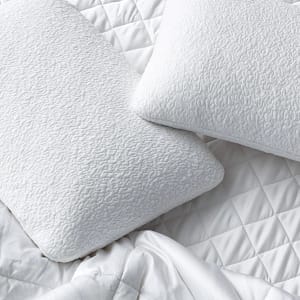Lack of proper sleep or frequent disturbances during sleep can seriously impact your health. However, spotting sleep issues isn’t always a piece of cake. This is where a sleep diary steps in as a handy tool.
A sleep diary helps in keeping track of your sleep patterns, observing habits, and noting any sleep-related troubles. If you’re facing problems with sleep, maintaining a sleep diary can assist in creating a treatment strategy with a doctor or a sleep specialist.
What Is a Sleep Diary?
A sleep diary is like a daily journal that records crucial sleep-related info. It typically covers things like:
- when you go to bed
- when you wake up
- how long does it take to doze off
- any disturbances during the night
- daytime naps
- how well do you feel you slept
- details about things like alcohol, caffeine, medications, and exercise.
You might also hear it referred to as a sleep journal or sleep log, and they’re essentially the same, although some see a diary as more detailed than a log.
Why Do You Need A Sleep Diary?
Using a sleep diary is key to understanding a person’s sleep patterns. Doctors commonly ask for a sleep diary from their patients, but some folks might use one on their own. By jotting down sleep details, the diary helps figure out the total sleep time and spot disruptions that affect sleep quality.
Pinpointing habits that impact sleep can reveal patterns and explain sleep issues. Healthcare providers rely on the concrete info in a sleep diary more than a general recall of sleep habits. Moreover, a sleep diary can prepare for specific sleep studies, making the results more reliable by showing stable sleep before the study.
Guide to Using a Sleep Diary
To make the most of a sleep diary, keep it updated regularly. Store it in an easy-to-reach spot, like your bedroom, and remember to jot down info each day using a pen.
If it’s prescribed by a doctor, follow their format and instructions. Typically, it’s advised to maintain a sleep diary for at least a week or more, depending on the purpose. When starting a diary, you choose how long to record and how often to review your sleep info.
Reviewing Your Sleep Diary
If you’re managing your own sleep diary, it’s a great tool to improve your health. Ask yourself these questions while reviewing your diary:
- Am I giving myself enough time for sleep?
- Is my sleep routine consistent or all over the place?
- Do I spend a lot of time in bed struggling to sleep?
- Are there patterns in disturbances during the night?
- Is my sleep satisfying or do I feel drowsy during the day?
- Are my naps too long or too late and affecting my nighttime sleep?
- Are substances like alcohol, caffeine, or medications impacting my sleep?
Some Great Sleep Diaries You Can Use
Here are some great recommendations if you are looking for a sleep diary!
Sleep by Insight Editions
Sleep by Insights Editions is a 90-day sleep tracker for people who want to improve their sleep quality. It helps you consciously monitor your sleep cycle and gives you the opportunity to evaluate the quality of your sleep.
You can do the following with Sleep by Insightful Editions:
- Set restful goals
- Maintain a reflection log
- Analyze your mood and stressors
- Follow a suitable morning practice
Comfort and Pillow Sleep Tracker
Comfort Pillow Sleep Journal is designed to help you understand your sleep patterns and make positive changes. This journal is your ultimate tool for achieving a restful and rejuvenating night’s sleep.
Here are the features:
- Log and improve your sleep habits
- Track your caffeine, nicotine, and alcohol intake
- Schedule your daily exercise routine
- Setup device off-time
- Detect interruptions
Sleep Diary vs. Other Remedies
Sleep diaries are commonly used for tracking sleep, but there are other methods as well:
Actigraphy
This test monitors movement using a wrist-worn device to track sleep objectively. While it provides more objective data than a sleep diary, the results are often similar, and sleep diaries are simpler and less expensive. Sometimes doctors might request both a subjective and objective assessment.
Sleep Questionnaires
Sleep questionnaires involve subjective evaluations of sleep without the detailed recordings of a sleep diary. They’re typically less precise than a sleep log.
Wearable Activity Trackers
Activity trackers track sleep data, but they might not be rigorously tested for accuracy. They are still helpful and can provide you with valuable insights into your sleep quality.
Even though there are alternatives, maintaining a sleep diary remains important due to its simplicity, low cost, and comprehensive insight into sleeping habits. It can be used at a doctor’s request or for personal monitoring.
Do you think you’ll be maintaining a sleep diary from now on?
If you have questions on how to make lifestyle changes to improve sleep, Chat with WonderWise on WhatsApp or join the WonderWise 2 weeks to better sleep challenge.
